Navigating the choppy waters of co-parenting after separation or divorce can feel like trying to paddle a boat with one oar. That’s where court-ordered co-parenting classes come in – they’re the missing paddle that helps parents steer their family ship in the right direction.
These mandatory educational programs serve as a crash course in “Peaceful Parenting 101” for separated couples. While nobody jumps for joy at the thought of court-ordered anything, these classes have proven to be a game-changer for countless families. They provide essential tools and strategies to help parents communicate effectively, manage conflicts, and most importantly, keep their children’s wellbeing at the forefront of every decision.
Table of Contents
ToggleWhat Are Court Ordered Co-Parenting Classes
Court ordered co-parenting classes equip separated parents with essential skills to manage shared parenting responsibilities. These structured programs focus on creating a stable environment for children while minimizing conflict between parents.
Common Topics Covered in Classes
Co-parenting classes address key aspects of post-separation parenting:
- Communication strategies for exchanging information about children’s schedules activities medication
- Conflict resolution techniques to handle disagreements over parenting decisions
- Emotional support methods to help children cope with family changes
- Boundaries establishment between ex-partners for respectful interactions
- Stress management tools for parents dealing with custody arrangements
- Documentation practices for maintaining records of agreements communications expenses
- Child development understanding across different age groups phases
- Parallel parenting approaches for high conflict situations
Length and Format Requirements
- Online self-paced modules with multimedia content quizzes
- Virtual instructor-led sessions through video conferencing platforms
- In-person group workshops at community centers courts
- Hybrid formats combining online material with live discussions
| Format Type | Duration | Completion Timeline |
|---|---|---|
| Online Self-Paced | 4-6 hours | 30 days |
| Virtual Live | 6-8 hours | 2-4 weeks |
| In-Person | 8-12 hours | 1-2 weeks |
| Hybrid | 6-10 hours | 3-6 weeks |
Benefits of Court Mandated Co-Parenting Education
Court-ordered co-parenting classes deliver measurable improvements in family dynamics through structured education programs. These programs focus on developing essential skills that enhance the co-parenting relationship while prioritizing children’s wellbeing.
Improved Communication Skills
Co-parenting education programs teach specific communication techniques that reduce conflict between separated parents. Parents learn to use neutral language in emails texts messages that focuses on child-related facts rather than emotions. The classes introduce structured communication templates for scheduling changes medical updates school activities. Communication skills training includes active listening exercises response management strategies conflict de-escalation methods. Parents practice these skills through role-playing scenarios realistic examples from common co-parenting situations.
Better Understanding of Children’s Needs
Co-parenting classes emphasize recognizing age-appropriate developmental stages emotional responses to divorce. Parents learn to identify signs of stress anxiety depression in children during family transitions. The curriculum covers specific strategies for maintaining consistent routines across both households creating stability. Educational modules address children’s academic social emotional needs during different developmental phases. Training includes techniques for validating children’s feelings while maintaining appropriate boundaries between adult child issues. Parents gain tools for supporting their children’s relationships with both parents extended family members.
Types of Court Ordered Co-Parenting Programs
Court-ordered co-parenting programs come in various formats to accommodate different learning styles and schedules. Parents select from online courses or in-person workshops based on their specific circumstances and court requirements.
Online Co-Parenting Classes
Online co-parenting classes offer flexible scheduling through self-paced learning modules accessible 24/7. These programs include video lessons, interactive exercises and downloadable resources covering essential topics like communication skills and conflict resolution. Parents complete assignments through secure platforms that track progress and verify participation. Many online courses feature built-in assessment tools to measure understanding of key concepts. Certificate generation occurs automatically upon successful completion of all required modules. Top providers like Parents Forever and Children in Between Online maintain court approval across multiple jurisdictions.
In-Person Workshop Options
In-person workshops provide direct interaction with certified family counselors and other parents in similar situations. Local family courts partner with community organizations to offer these 4-8 hour sessions in convenient locations. Participants engage in guided discussions, role-playing exercises and small group activities focused on practical co-parenting strategies. Licensed facilitators demonstrate effective communication techniques through live demonstrations. Course materials include workbooks, handouts and reference guides for ongoing support. Many programs incorporate follow-up sessions after 3-6 months to reinforce learning and address new challenges. Registration requires advance scheduling with limited class sizes of 8-12 participants.
How to Choose an Approved Co-Parenting Course
Selecting an approved co-parenting course demands careful consideration of state requirements and accreditation standards. Parents seeking court compliance benefit from understanding these essential criteria before enrolling in a program.
State-Specific Requirements
Each state maintains distinct requirements for court-ordered co-parenting classes. The curriculum length varies from 4 to 12 hours across different jurisdictions. States like Florida mandate in-person attendance while others accept online formats. Several states require specific topics in the curriculum:
- Child development stages
- Communication protocols between separated parents
- Conflict resolution methods
- Financial responsibilities documentation
- Custody arrangement management
Courts often provide a list of pre-approved providers that meet local requirements. Parents must verify course acceptance with their specific court before enrollment to ensure compliance with their case requirements.
Accreditation Standards
Legitimate co-parenting courses carry endorsements from recognized family law organizations. Quality programs display credentials from:
| Accrediting Body | Type of Recognition |
|---|---|
| Association of Family and Conciliation Courts (AFCC) | Professional Certification |
| National Parent Education Network | Program Standards |
| State Bar Associations | Legal Compliance |
Accredited courses feature:
- Licensed family counselors as instructors
- Evidence-based teaching methods
- Regular content updates reflecting current laws
- Secure documentation systems
- Verifiable completion certificates
Programs maintain compliance with the International Association of Court Services professional standards for parent education delivery methods.
Cost and Financial Considerations
Court-ordered co-parenting classes range from $30 to $180, depending on the program length and delivery format. The cost varies based on state requirements, course provider credentials and program features.
Payment Options
Most co-parenting course providers accept multiple payment methods:
- Credit cards (Visa, Mastercard, American Express, Discover)
- Digital wallets (PayPal, Apple Pay, Google Pay)
- Electronic checks through secure payment portals
- Payment plans that divide the total cost into 2-3 installments
- Money orders for in-person class registration
Program fees include:
| Item | Cost Range |
|---|---|
| Online self-paced courses | $30-75 |
| Virtual instructor-led classes | $75-120 |
| In-person workshops | $100-180 |
| Course materials | $15-25 |
| Certificate processing | $10-20 |
Fee Waivers and Assistance
Financial assistance options make court-ordered co-parenting classes accessible to all parents:
- Income-based sliding scale fees reduce costs by 25-75%
- Full fee waivers for parents below federal poverty guidelines
- Scholarships through family service organizations cover 50-100% of costs
- Court-issued fee waivers based on documented financial hardship
- Payment assistance through state social services departments
- Reduced rates for military families and veterans
- Legal Aid Society
- Family court assistance programs
- Domestic violence support centers
- Faith-based community organizations
- State bar association resources
Completion Requirements and Documentation
Court-ordered co-parenting classes require specific documentation protocols to verify completion. Parents must follow precise submission guidelines to receive credit for their participation.
Court Submission Process
Courts maintain strict documentation requirements for co-parenting class completion. Parents submit their completion certificates through the court clerk’s office within 30 days of course completion. The submission package includes:
- Original completion certificate with raised seal
- Course attendance records showing participation dates
- Proof of payment for class fees
- Case number reference on all documents
- Notarized affidavit confirming identity (if required)
Electronic submissions follow specific protocols:
- PDF format for all documents
- Digital signature verification
- Secure upload through court portal
- Confirmation receipt retention
Certificate Verification
Courts authenticate co-parenting class certificates through multiple verification steps. The verification process includes:
- Digital watermark validation
- Course provider accreditation check
- Instructor credentials confirmation
- Completion date verification
- Participant identity matching
Certificate elements for verification:
- Unique certificate number
- Provider registration code
- Official course completion date
- Hours completed
- Court jurisdiction stamp
- Course administrator signature
- Parent identification details
The court maintains these records in their database for 7 years after submission. Parents receive notification of successful verification within 5-10 business days through certified mail or secure electronic communication.
Conclusion
Court-ordered co-parenting classes serve as a vital foundation for successful post-separation parenting. These programs empower parents with practical skills to navigate shared responsibilities while putting their children’s needs first.
Through structured learning and expert guidance parents can transform challenging co-parenting situations into opportunities for growth and positive change. With flexible formats reasonable costs and financial assistance options these classes are accessible to families from all backgrounds.
The investment in court-mandated co-parenting education pays dividends in improved family dynamics and children’s wellbeing. When parents commit to applying the tools and strategies learned they create a more stable and nurturing environment for their children to thrive.






